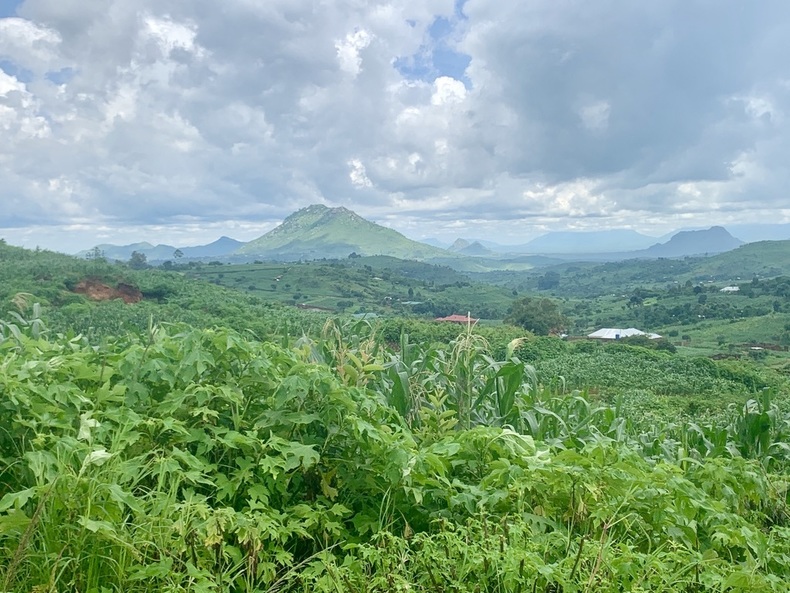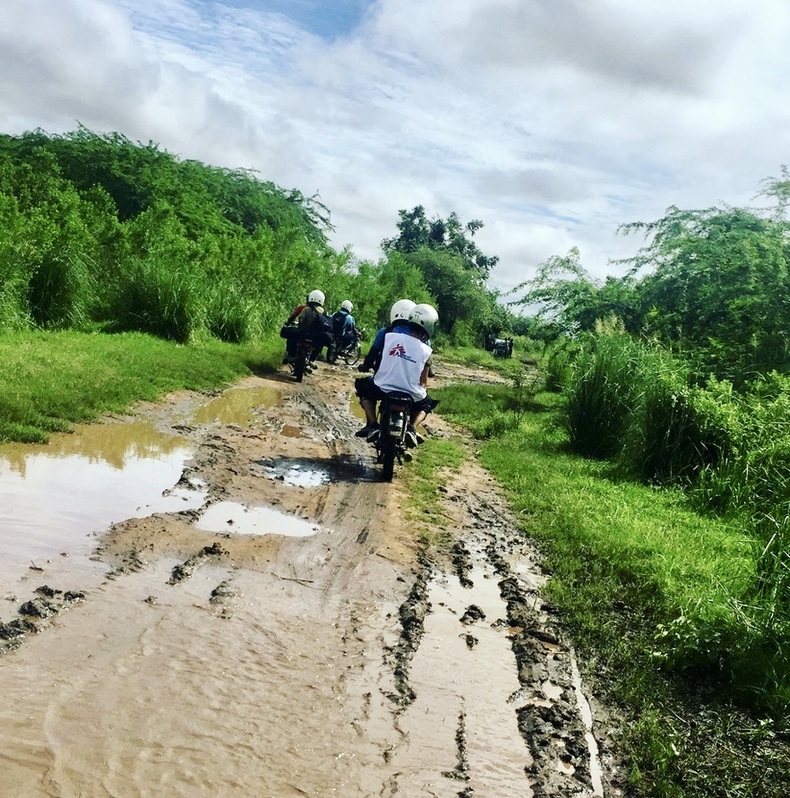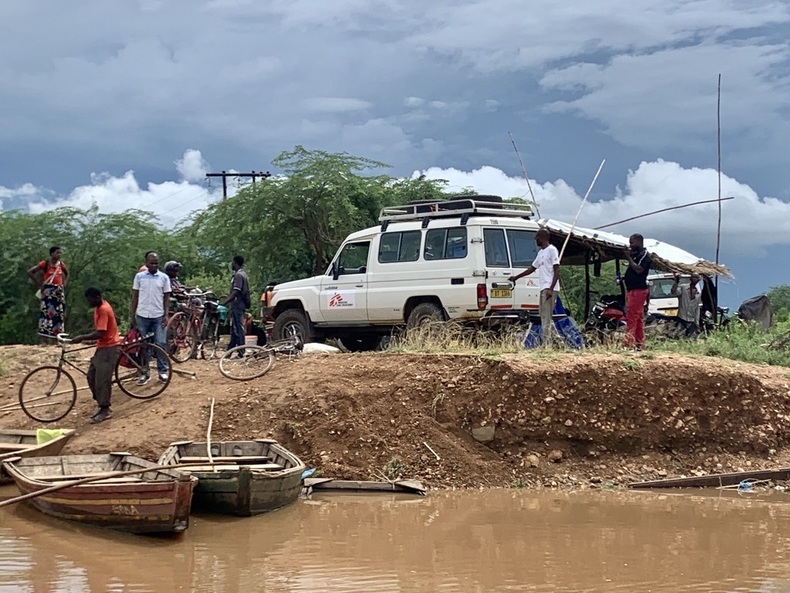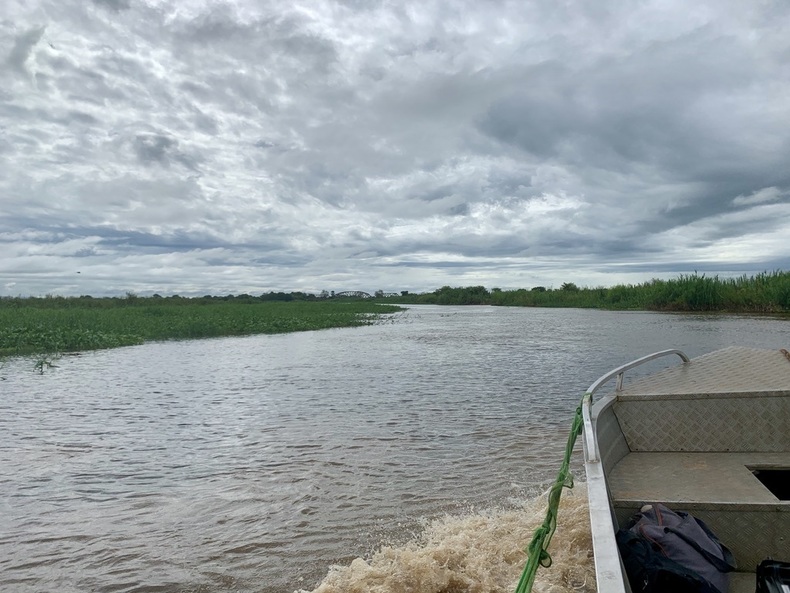
(photo: Outside of Blantyre, Malawi)
From September 2019 until earlier this month (July), I was on my first mission working with MSF (Doctors Without Borders) in Malawi, a small landlocked country in southern Africa. Malawi (formerly Nyasaland) has been independent from British rule since 1964, after which the country experienced 30 years of one-party totalitarian rule by Hastings Banda. In 1993 a new constitution was put into place, ending single party rule. Today Malawi is a multi-party parliamentary democracy, divided into three regions (Northern, Central and Southern), and 28 districts, the subdivisions of which are quite relevant for the health and other sectors given the decentralisation of decision-making and budgets.
It was an extremely busy mission, leaving little time for blogging 😃. The mission itself was quite busy, and the political situation was also constantly evolving. During this period: there were frequent protests over the May 2019 election results; the Constitutional court invalidated the election results in February 2020 due to irregularities (this is the second time a court has invalidated an election in African history); a new election was held in June which resulted in different leadership; and there was quite peaceful transition of power. (see https://www.aljazeera.com/news/2020/06/historic-election-malawi-200626070010661.html)
The MSF Belgian mission has three projects: (1) an advanced HIV (late stage HIV (stage 3 or 4) or AIDS) project in rural Nsanje; (2) a prison project providing TB and other services in Chichiri prison in Blantyre; and (3) a project providing comprehensive one-stop sex worker friendly HIV and SRH (sexual and reproductive health) services to female sex workers in three sites (see https://www.msf.org.za/about-us/where-we-work/malawi) . Things have been especially challenging with Covid-19, in a country which has an extremely weak health system and severe resource constraints (limited hospital beds, challenges ensuring adequate supplies of medicines and other basic equipment, severe human resource for health constraints, among many others). Medical operations have all been adapted to support the Covid response. Unfortunately, the mission will close later this year.
There is so much that I could write about the last year. Perhaps most notably, I've gained a deeper understanding of the extent of the need for quality, non-discriminatory health care, especially for the poor and marginalised (prisoners, key populations, those in remote settings, adolescents, women). Yes, access barriers to health services have been a significant focus throughout my career. However, spending more time in the field and working for a medical humanitarian organisation has provided a better, more concrete understanding of the barriers themselves and their impact, and what needs to be done.
The needs in Malawi are great, multiple, cross-cutting and ever-changing. The health sector relies very heavily on international donors, in a world in which health politics are increasingly complex and many countries have turned inward. Yet, the country manages to make remarkable strides with their limited resources, in the context of HIV and beyond. Malawi is one of the poorest countries in the world, and Nsanje is the second poorest district; yet the country provides national health care for all and without charge (though user fees may be introduced which is a separate discussion). Malawi is also, for example, rolling out more point of care machines at the health centre level to improve diagnostics for advanced HIV. The new National Strategic Plans for HIV and TB, and other policy documents reflect a well reasoned approach to address the needs of a growing (and aging) HIV cohort with integrated service provision, with adapted approaches for specific populations. Perhaps even more importantly, I greatly respect and appreciate the kindness, persistence, and strength of many Malawians I've met, professionally and socially.

photo: The team and I traveling by moto in Makanga, Malawi to get to Chintedza's village
A snapshot of the last year was captured in an article I wrote recently about a trip to Nsanje, which highlights heartbreaking and severe access challenges facing those in remote parts of Malawi, which make me appreciate how unequal and unjust the world is. While there has been significant and commendable progress in the HIV and TB responses, there is still a long ways to go. There is perhaps even further to go, in order to reach any measure of health equity.
AIDS deaths have reduced by 60% globally since the peak. While this progress is significant, many people seem to think that AIDS is over, which this is far from true. In Malawi alone, a country of approximately 18 million persons, each year 13,000 people still die of AHD (Advanced HIV disease). TB is a great contributor to AHD mortality, as are infections and other AHD-related illnesses. This was the case even before Covid-19, along with many socio-economic, quality of care and other barriers. Undoubtedly, there will be significant lost ground due to Covid-19, which is ruinously disrupting all aspects of life all over the world, including HIV, SRH and other health care services. For those with already limted/tenuous access, who facing great economic, logistic and other barriers, the impact of Covid-19 is potentially disastrous, particularly for AHD patients who are generally already in poor health.
For those of you who have never met someone with advanced HIV, it is devastating and difficult to behold (see image in article--link below). Their bodies, and sometimes also their spirits, may be quite fragile. When someone is in an advanced stage of HIV, they may experience a condition called 'wasting' in which they have very little body fat and muscle, with their bones protruding significantly. Someone with AHD typically has a low CD4 count (a key indicator of immune function and HIV progression), and urgently needs high quality services --generally tertiary or hospital care--to ensure they are stabilised, diagnosed with any OIs (opportunistic infections), and initiated onto treatment/switched to second or third line ARVs. A high portion of AHD patients die within the first 48 hours of admission, illustrating that measures need to be taken rapidly, efficiently and by well-trained providers in a setting that has necessary medical equipment, tools and medicines.
The recent article is about some of the access barriers faced by one individual, Chintedza, a chief we were seeking to interview in extremely remote and difficult to access Makanga (an island only accessible by boat, with no cars). Chintedza had previously been in Nsanje district hospital (quite a distance from Makanga), but had thereafter been discharged after his condition improved (we went to visit him some time after the discharge). The time in the hospital was difficult for his family and community, given economic and other barriers; they had difficulty paying for food for the person accompanying him during the hospital stay. The article was from a visit to Nsanje in January, highlighting how difficult things were prior to Covid-19.
To better understand some of the challenges concerning AHD, and how this still impacts lives and communities in Malawi, please read the article in the link below.
The article can be accessed here: (https://www.msf.org.za/stories-news/staff-patient-stories/aids-has-not-disappeared-reality-advanced-hiv-disease-nsanje)

photo above: Bangula, Malawi. Where you board the boat to get to Makanga

photo above: On the boat, on the way to Makanga
The content in this article is the opinion of the author, and is in no way attributable to MSF.
Living in the world. Humanitarian. Advocate for health, human rights and equality. Documenting experiences and observations.
